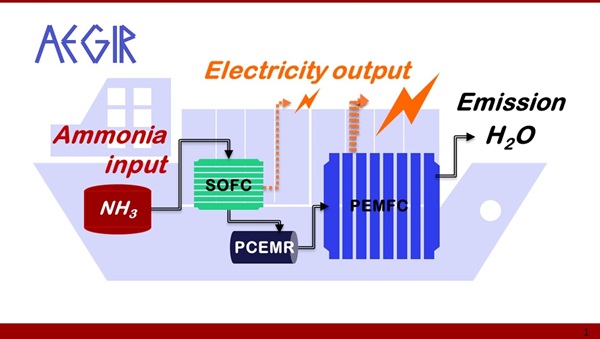
International shipping is a significant greenhouse gas emitter - if counted as a country, it would be on a ca. sixth place of energy-related CO2 emissions. The international maritime organization issued a strategy envisaging a 60 % reduction in the greenhouse gas emissions from international shipping by 2050 and a complete phase out of CO2 emissions by 2100. The only way to reach these targets is by wide-scale implementation of low- and zero-emission solutions within the maritime transport sector. This is the focus of the Aegir project.
The overall target of the Aegir project is to develop, test and evaluate an environmentally friendly technological solution to power large marine vessels by using green ammonia as primary fuel. The project has four main objectives: 1. Design the concept for an electric ammonia fueled ship with an efficiency over 50%. 2. Demonstrate a reduction of greenhouse gas emissions by 90% compared to current state-of-the-art liquefied natural gas fueled marine engines through a well-to-propeller analysis. 3. Experimentally validate three key enabling technologies for the integrated concept. 4. Provide a concept study to identify potential scale up issues.
The Aegir project proposes to integrated three key technologies to achieve the target: (i) solid oxide fuel cells (SOFC), (ii) a proton conducting electrochemical membrane reactor (PCEMR), and (iii) polymer exchange membrane fuel cells (PEM).